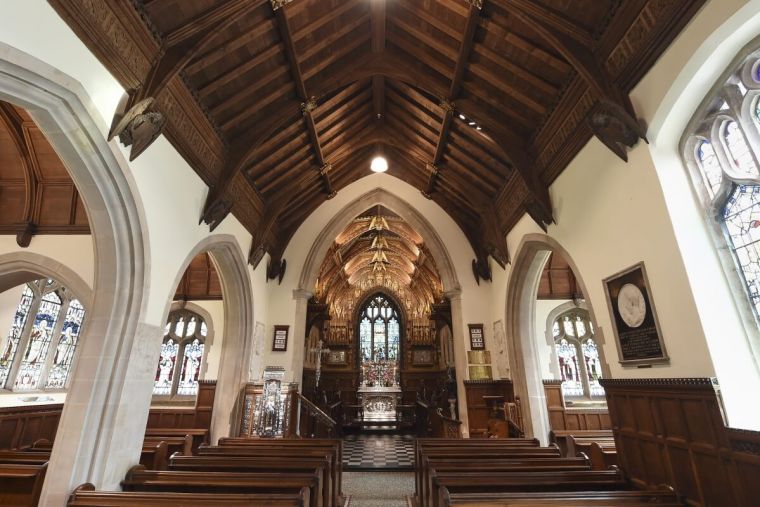Why is established Christianity in decline? Truth, Trump and the quality of worship
Studies analysing the decline of the churches in Britain and Europe continue to appear. Unfortunately the volume of essays edited by Paul Silas Peterson entitled The Decline of Established Christianity in the Western World (published by Routledge) is unlikely to have many buyers with a price tag of £110. This is unfortunate since the contributors make many important points.
The focus is on churches that are 'historically, socially, culturally and politically embedded in a given context with or without legal established status'. This means that black churches in Britain (which are thriving) are not covered but the Southern Baptists are. Everywhere established churches are in decline, including Southern Baptists. America is no longer the exception as far as decline is concerned although it lags behind other countries.

By and large decline is generational. Each generation is less religious than the one that went before. Some argue that religion in the West has not so much declined as changed its nature with non-churchgoers still claiming to be spiritual. But Peterson warns that we now face a new phenomenon of people who say they have 'no religion, no religious experience, no concern for a transcendent religious sentiment and little care for the institutional church'. Eastern Germany leads the way here.
New initiatives by the Church of England get a mixed response. Fresh Expressions which has spread to other European countries and crossed the Atlantic to Canada gets good marks but there is no approval for the current fad of adopting secular management models. When clergy think, preach and lead like managers of small companies, one contributor claims, they have limited appeal.
Callum Brown and Hugh McCeod have seen the 1960s as the key decade when church allegiance began to plummet and the position of the churches in society came under question. Peterson refers to what the terms 'the self-secularisation of Christianity' when liberal theologians interpreted traditional beliefs in ways that made them seem less relevant.
Peterson is on to something here but what he says needs further amplification. Oxford historian Sam Brewitt-Taylor supports the self-secularisation thesis. He shows that theologians and church leaders started talking of secularisation in the media in the very early 1960s before the sociologists and secular experts really got on to the subject. The question he does not explore is why this happened. Why was it the theologians who proclaimed the death of God or at least argued that 'our image of God must go'?
No doubt there were a number of reasons but I suspect two were particularly important. One was the challenge of logical positivism. The ideas expressed by A.J. Ayer in Language, Truth and Logic were widely accepted in the general culture. The empiricist mindset was widespread. People thought there was no evidence to back claims to belief in God or to verify religious language. At best it could be taken as poetry. The second reason was the prevalence of radical New Testament scholarship and the influence of Bultmann. If little could be known about the Jesus the historical basis of Christianity was thrown in doubt.
Both historians and sociologists are often reluctant to give weight to intellectual reasons for the decline of Christianity but I suspect these reasons continue to be a factor. In both philosophy and New Testament studies the mood has changed. Christian philosophers like Alvin Plantinga and Richard Swinburne have advanced impressive arguments to justify religious belief. New Testament scholars like Tom Wright have made a good case for the historical credibility of the New Testament. Unfortunately just when life seemed to be getting easier for Christian apologists truth itself came under suspicion. Post-modernists follow Nietzsche and Freud in seeing claims to truth as serving vested interests. Violence inspired by religion and sexual abuse by clergy have further undermined religious belief and confirmed suspicions inspired by post modernism.
In America the evangelical brand is being badly tarnished by association with Donald Trump. The 90-year-old Evangelical Association at Princeton has changed its name. The word 'evangelical' is in danger of becoming toxic.
What is the way forward? Although no one in The Decline of Establishment Christianity says it, the churches need to examine the quality of their witness. This is more important than a concentration on evangelism. Where there is a high quality of worship and discussion of religious topics churches can flourish. This is probably why cathedrals do well and why 400 people crowd into St Martin the Fields at lunch time to hear the choir perform a piece of music and the vicar talk about its religious significance.
Paul Richardson worked for 17 years as a missionary in Papua New Guinea, and is now a Catholic priest in the Diocese of Westminster.











